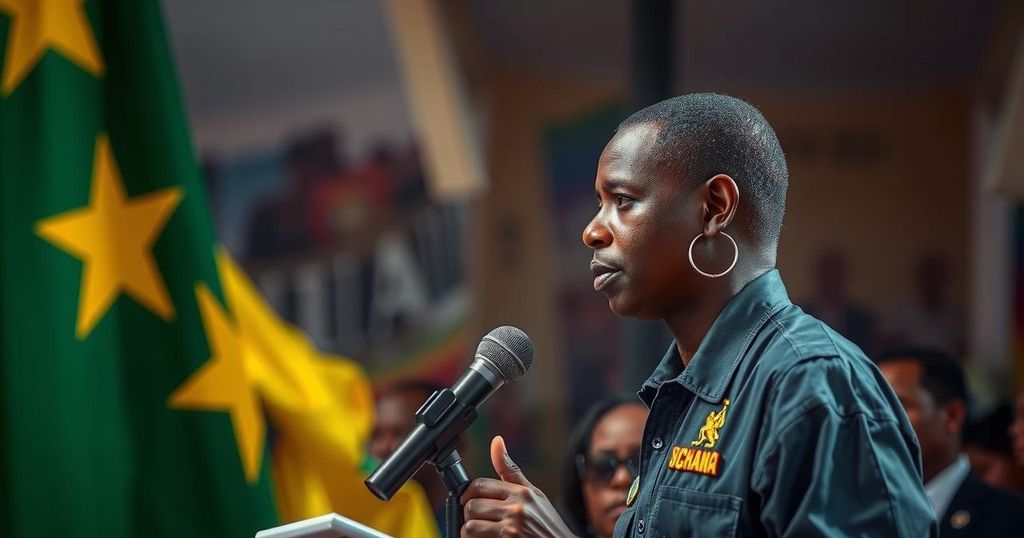Ghana’s Illegal Mining Crisis and Its Impact on the Presidential Election

Ahead of Ghana’s presidential election, illegal mining known as “galamsey” is a pressing concern that impacts both the environment and the economy. Miners like Frank work under dire conditions, risking health and livelihoods fueled by high unemployment. With candidates vying for power, voters seek accountability and effective strategies to address ongoing environmental devastation and economic hardship.
In Ghana, the burgeoning phenomenon of illegal mining, known locally as “galamsey,” poses significant environmental and economic challenges, especially as the nation approaches its presidential election. Mines near Accra showcase the desperate plight of workers like Frank, who, despite acknowledging the environmental degradation caused by their labor, continue to mine for survival due to pervasive unemployment. The electoral race features Vice President Mahamudu Bawumia from the New Patriotic Party (NPP) against former President John Mahama from the National Democratic Congress (NDC), with both candidates facing criticism regarding their handling of the galamsey crisis.
The work environment for illegal miners is perilous, often leading to the destruction of arable land, pollution of water bodies, and a detrimental impact on Ghana’s agriculture, particularly cocoa production. Reports indicate that over 19,000 hectares of farmland have been lost to mining activities, exacerbated by unchecked mercury and cyanide contaminants in rivers that threaten water supplies for millions. Despite previous government promises to tackle illegal mining, practices have proliferated amidst rising gold prices and youth unemployment, making the issue a pivotal concern for voters.
Calls from miners for government support in adopting responsible mining practices have resonated, as many feel marginalized by government crackdowns that emphasize enforcement over engagement. Public demonstrations, fueled by hashtags such as stopgalamseynow, illustrate a growing frustration among the youth who perceive the ongoing crisis as indicative of governmental failure to prioritize sustainable practices. Experts stress the necessity of a concerted, cooperative approach among all stakeholders to effectively address and mitigate the impacts of illegal mining in Ghana.
As the election draws near, candidates must confront the reality that the issues surrounding illegal mining resonate deeply with the electorate and that proposed policies will have significant implications for the environment and local communities. The upcoming vote represents an opportunity for constituents to voice their demands for accountability and action regarding the galamsey crisis.
The issue of illegal mining, known as “galamsey,” has become increasingly prominent in Ghana due to its detrimental effects on the environment and local economies. As a significant contributor to gold production, galamsey operations are often unregulated, resulting in severe ecological damage, including deforestation, soil degradation, and water contamination. The plight of miners is often underscored by economic necessity, as many are left with few alternatives in regions suffering from high unemployment. The upcoming presidential election serves as an important backdrop for addressing these urgent challenges and holding candidates accountable for their environmental policies.
In summary, Ghana’s illegal mining crisis is an urgent topic on the electoral agenda, reflecting deep concerns over environmental degradation, economic survival, and governmental accountability. The election outcomes may significantly influence policies related to sustainable mining and environmental stewardship, thereby shaping the future for both the extractive industry and affected communities. Candidates must be attuned to the sentiments of voters for responsible action to combat the negative impacts of galamsey.
Original Source: www.barrons.com







